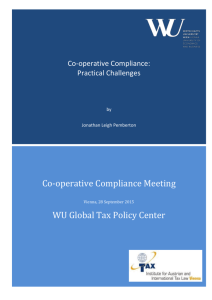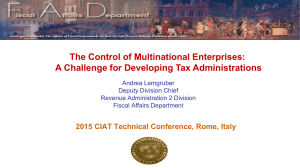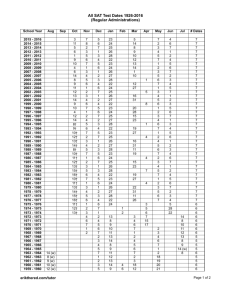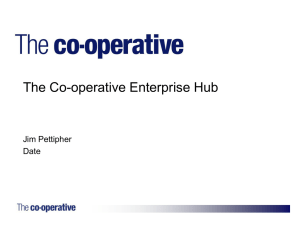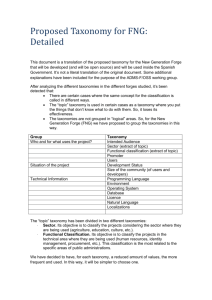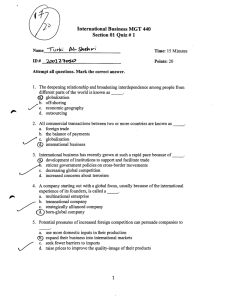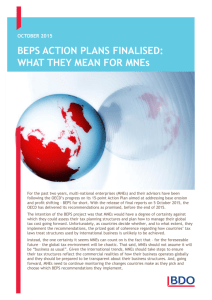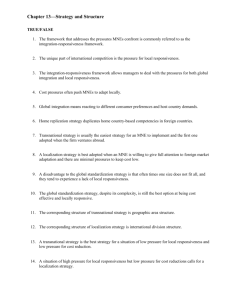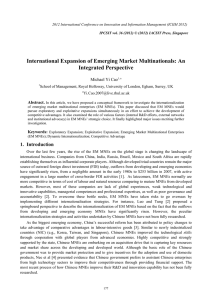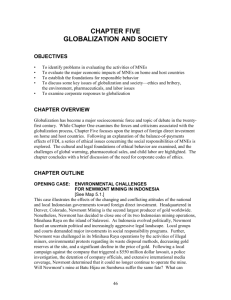Co-operative Compliance – The Political Dimension
advertisement
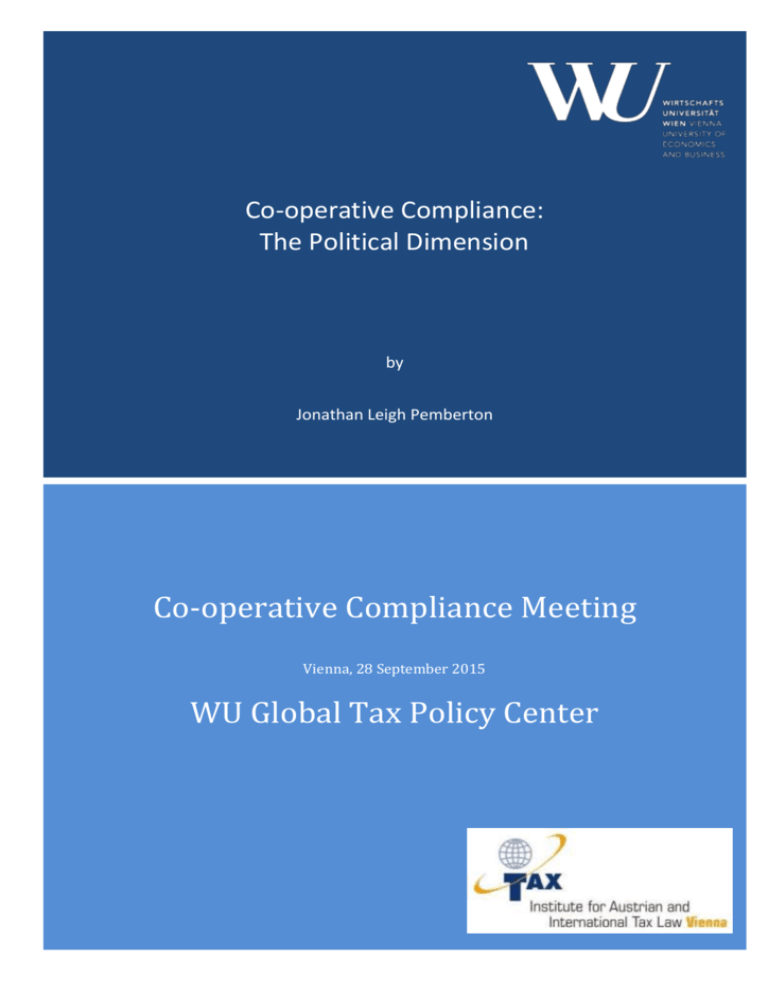
Co-operative Compliance: The Political Dimension by Jonathan Leigh Pemberton Co-operative Compliance Meeting Vienna, 28 September 2015 WU Global Tax Policy Center Co-operative Compliance – The Political Dimension Corporate taxation, and corporate tax avoidance in particular, has featured prominently in the political agenda across the world since the Financial Crisis. The perception that there is one rule for rich and powerful multinational enterprises (MNEs) and a different one for ordinary citizens, has fuelled public anger and political pressure for reform. In many ways this has been a force for the good, making it possible to drive forward reform of the international tax system much more quickly than has been possible in the past. But the nature of the current discourse raises some issues and challenges for the Co-operative Compliance model: Much of the political discussion oversimplifies the issues and makes the presentation of measured reforms and a more constructive relationship with business much harder. In particular, it has sometimes suited politicians to ignore the extent to which the current situation is the result of deliberate tax policy decisions, usually motivated by a desire to be more competitive. How can the level of the debate about these issues be raised, given that the complexity of the underlying problems is hard for a non-specialist audience to understand, however sophisticated they may be. The political debate is deliberately framed in an adversarial way, with “bad” corporations ducking their responsibilities and needing to be brought to book by more aggressive tax administrations wielding greater powers. How can the Co-operative Compliance model be positioned so that it is seen as part of the solution, rather than one of the reasons why large business is not “paying enough”? How is the political debate affecting the way in which senior executives on the Boards of MNEs view taxation issues? Is it changing behaviour and is that true for all MNEs, or only those most vulnerable to consumer action? There is increasing pressure on MNEs to publish more information about their affairs (the Extractive Industries Transparency Initiative and the Capital Requirements Directive for example) including tax. Some countries are imposing new reporting requirements too. For the moment Country-by-Country reports and the new transfer pricing documentation resulting from BEPS Action 13 will be provided to governments only. Is that likely to remain the case? What impact will increased disclosure have on MNEs and their relationship with tax administrations? What is the right balance between transparency and confidentiality? For the most part, tax administrations still discuss the “success” of their compliance programmes in terms of additional yield resulting from audit type activity. There will be pressure on tax administrations to demonstrate that they are translating the new international tax regime into even more yield. The Co-operative Compliance model does not score well in terms of traditional measures of success because many potential tax risks and issues will have been addressed and resolved in advance of the tax return being submitted. Overall the model should be more successful in securing the total tax revenue due to governments but demonstrating this requires different measures. Are tax administrations doing enough to improve the way in which they demonstrate that they are achieving good compliance outcomes? The implementation of the BEPS Action Plan requires a mix of changes to the international agreements governing taxation and domestic law reforms. However, it is not clear that domestic reforms will be deliverable in every jurisdiction, at least in the short to medium term. Will this create pressure on countries to take unilateral action, leading to a significant increase in actual double taxation? Are tax administrations doing enough to restore confidence in the integrity of their decision-making processes when it comes to managing the tax affairs of MNEs?
